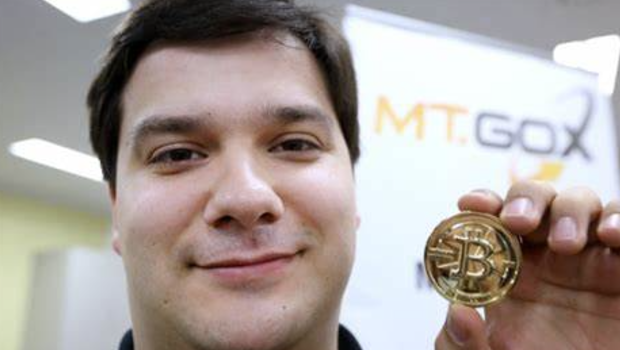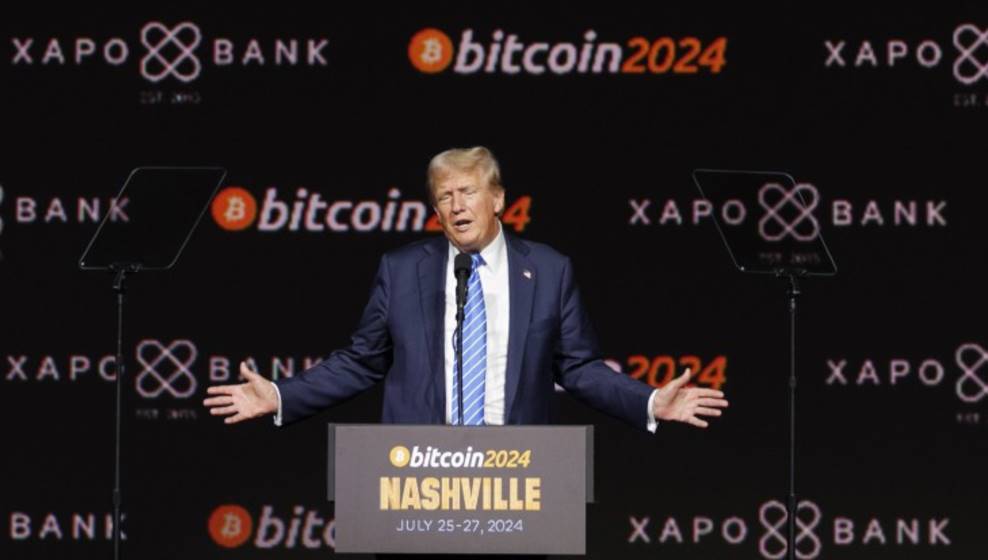Author: Mu Mu, Baihua Blockchain

Not long ago, former CZ of Binance was released from a US prison and appeared in Dubai to attend an industry event, breaking the outside world's speculation that he would be "detained" in the US for a long time. Recently, CZ, as the founder of the world's largest crypto trading platform, was also included in the Hurun Rich List, and while people are lamenting that even the rich in the crypto world can "get into trouble", they look back on the history of crypto development, where the founders and executives of many leading crypto companies have been arrested and imprisoned, and some have even listed a "crypto entrepreneurial risk list", and one can't help but ask: why is the "risk of imprisonment" of these crypto bigwigs still so high?
01 The "tightrope walking" crypto bigwigs
Since the birth of Bitcoin, the crypto industry has gone through more than a decade, during which time there have been constant entrepreneurs going to prison, including some once-famous "bigwigs".
On the crypto entrepreneurial risk list, the long-term one is the famous "Mt. Gox incident", where in 2014 the then world's largest Bitcoin trading platform Mt. Gox was hacked and lost hundreds of thousands of Bitcoins, and the former CEO of Mt. Gox, Mark Karpeles, was convicted of "falsifying financial records" (some suspect he embezzled, but no evidence was found, and the theft incident remains a mystery).

Former Mt. Gox CEO Mark Karpeles
Recently, in addition to CZ, there are Luna founder Do Kwon and FTX founder SBF, one of whom is temporarily not sentenced for "securities fraud", and the other was sentenced to 25 years in prison and a $11 billion fine for "financial fraud".

Arrested Luna founder Do Kwon
In comparison, CZ's imprisonment for 4 months is relatively mild, with the charge being "failure to implement an effective anti-money laundering program, violating the US Bank Secrecy Act", which means the company he managed (Binance) did not fulfill its anti-money laundering obligations and did not cooperate with US sanctions policies. Although Binance is not a bank, it is still unfortunate to get into this trouble, whether it is fair or not.
They say crypto entrepreneurship is risky, but it's more risky than expected, and the description of the crypto bigwigs' entrepreneurship as "tightrope walking" is not an exaggeration.
02 The 5 main reasons why the "risk of imprisonment" of crypto bigwigs is so high, the last one is the key
The charges against the various bigwigs are quite diverse, and each of them was a "favored child of heaven" with outstanding talent before their imprisonment. If the reason is simply "lack of legal awareness", it certainly won't hold up. By comparing the imprisonment-related events of these bigwigs, it is not difficult to find some commonalities and underlying logic. In the end, the conclusion is that the "risk of imprisonment" of crypto bigwigs is high for at least these 5 reasons:
1) Unable to resist temptation, aggressive and greedy
Typically, many top crypto platforms and projects have to custody tens or even hundreds of billions of dollars in assets for users. In an era where liquidity is money and you can earn huge profits just by doing nothing, many people ultimately cannot resist the temptation, driven by human nature, and adopt aggressive strategies, misappropriating user assets to invest in high-risk markets, leading to ever-widening holes and eventual collapse.
2) Innovation and illegality are only a wall apart
Often, innovation means breaking the existing rules. Crypto projects were once considered decentralized Internet finance innovation, and at that time the old regulatory measures were certainly lagging behind and inadequate, and the regulations were not clearly defined. In most cases, it is up to the innovative companies to consciously regulate their behavior, but often they inadvertently evolve into an "uncontrollable" situation like P2P finance.

Although some countries and regions have a strong tolerance for financial innovation like crypto, some activities are ultimately a major challenge to the existing system. Often there is no clear rule on what can and cannot be done, and where the red line is, which leaves only a wall between innovation and illegality, and is the dilemma of all entrepreneurs.
3) The "original sin" of crypto
To this day, even though crypto assets represented by Bitcoin have long entered the mainstream public view, there are still a considerable number of people who believe that this is a "dark" industry, because it can be used for many illegal purposes, providing convenience for criminals, and the sudden wealth of many early crypto asset holders has also led to some people's "uneven wealth distribution", fueling hatred.
Due to the difference in perception, those who do not recognize and accept it look at the crypto industry with colored glasses, and these people are widely present in the judicial system. When the "original sin" of crypto is listed one by one by them, they will constantly launch various legal challenges against crypto entrepreneurs and related projects.
Of course, as crypto assets become more mainstream, more and more people are putting aside their prejudices after further understanding it, but one can't expect an overnight reversal, it takes time.
4) The high and difficult cost of global compliance
Taking crypto exchanges as an example, since crypto platforms usually serve global users, the global crypto financial activities, like other traditional financial institutions, need to comply with different laws and regulations, and some countries' long-arm jurisdiction policies. And they also have to face the difficulties created by some regulators who wear "colored glasses".
Traditional multinational financial institutions, such as Paypal, have to apply for various local licenses, face different regulatory policies, and deal with different local regulators when deploying related businesses in each country. If any link is not in place, they may face fines of billions of dollars in that local market, and the human and material resources invested are incalculable.
As early as 2022, CZ stated on social media that Binance has already spent over $1 billion on global compliance, and this figure is constantly rising. Add to that the tens of billions in fines paid during this year's reconciliation process with US regulators, the total amount is truly astronomical.
5) The "international discourse power" of the crypto market is being contested
Since El Salvador announced "All in" on Bitcoin, we already know that national-level players have entered the field. Bitcoin and other crypto assets not only represent financial payment innovation, but also represent the future technology of the next generation of Internet, Web3. In the discourse power of innovative technology, even if they understand the risks involved, most countries are unwilling to fall behind.
Take the previous cases as an example, the US's handling of FTX, and the penalties imposed on Binance, ultimately led to the imprisonment of their founders, with FTX even disappearing from this track, and Binance paying tens of billions of dollars to reach a settlement with the regulators. At the same time, the settlement plan also requires the US Treasury Department to retain access to Binance's accounts and systems for five years.
The purpose of the various regulatory authorities in the United States is not only to maintain the stability of the financial market, but also to crack down on the leading trading platforms, requiring these platforms to comply with the long-arm jurisdiction and the rules set by the United States, which also serves as a demonstration for the crypto industry. Some countries have already begun to use blockchain and crypto assets to conduct international trade bypassing the US dollar hegemony. For the United States, cryptocurrencies such as Bitcoin are still a "double-edged sword". If this "sword" cannot be "destroyed", then it can only be controlled in some way, or guided to serve its own interests, making itself the biggest beneficiary. While the US is deeply monitoring and supervising platforms with high discourse power in the crypto asset market, such as Binance, the long-pending Bitcoin spot ETF has suddenly been approved, and the Ethereum spot ETF has also been approved. US-related capital has "confidently" flowed into the crypto market through these safe channels, and the US has subsequently gained a certain degree of "pricing power" while bringing the crypto market under its control. Trump, who has just been elected as the 47th President of the United States, previously mentioned in his speech at the Bitcoin conference that Bitcoin is not only a technological miracle, but also a miracle of cooperation and human achievement. The reason he came to the Bitcoin community to deliver a speech is that he adheres to the "America First" principle, and his vision is to make the US dominate the future, hoping that the US will become the leading country, and he wants to ensure that the US becomes the crypto capital of the earth and the world's Bitcoin superpower.
## 03 Summary
For centralized platforms and project teams, regulation is something that cannot be avoided, and the countries and regions that can balance regulation and innovation will become the biggest beneficiaries of this technology and innovation. With the recent US election dust settled, the crypto-friendly President Trump is about to take office, which will also bring a more friendly regulatory environment. I believe that in the future, crypto entrepreneurs like CZ will finally be able to "rest their hearts" and accelerate the implementation of crypto and Web3 applications.
Trump, who has just been elected as the 47th President of the United States, previously mentioned in his speech at the Bitcoin conference that Bitcoin is not only a technological miracle, but also a miracle of cooperation and human achievement. The reason he came to the Bitcoin community to deliver a speech is that he adheres to the "America First" principle, and his vision is to make the US dominate the future, hoping that the US will become the leading country, and he wants to ensure that the US becomes the crypto capital of the earth and the world's Bitcoin superpower.
## 03 Summary
For centralized platforms and project teams, regulation is something that cannot be avoided, and the countries and regions that can balance regulation and innovation will become the biggest beneficiaries of this technology and innovation. With the recent US election dust settled, the crypto-friendly President Trump is about to take office, which will also bring a more friendly regulatory environment. I believe that in the future, crypto entrepreneurs like CZ will finally be able to "rest their hearts" and accelerate the implementation of crypto and Web3 applications.







